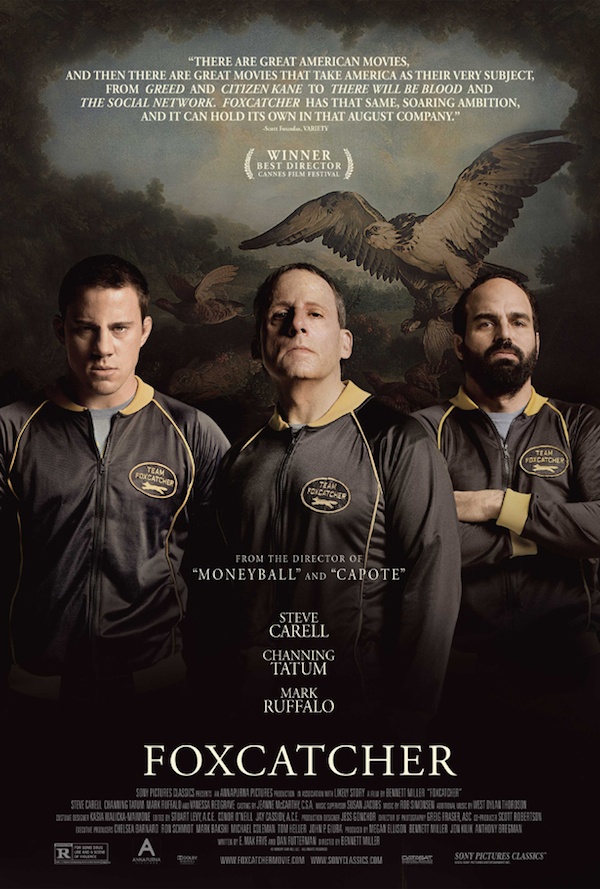Movie Breakdown: Foxcatcher (Noah)
People are doing traditional-style reviews all over the web, so we decided to try something different. In each “breakdown” we’ll take a look at what a film’s marketing led us to believe, how the movie actually played, and then what we learned from it all. Read on!
The Impression:
I don’t know if you could line up a more interesting story, with a more capable director, and better trio of actors. Every preview for this thing has been absolutely spellbinding and my only worry is that my own personal hype machine is working so hard that any film won’t be able to live up to its crushing force.
The Reality:
Foxcatcher is the most interesting, creepy, and beautiful mainstream picture this year. I haven’t seen everything yet, but I’m calling it now – nothing in the mainstream realm of Hollywood films is even going to scratch the surface of this film.
Based on a true story, Foxcatcher tells the tale of mega-gazillionaire John du Pont (Steve Carrell in all his nose-prosthesis glory) who buys the talents of one broken former wrestling gold medalist (Channing Tatum) and his brother, and the strange and horrible consequences of his actions. To say that this film is just a showcase for its amazingly talented cast, which it is, is to short change it. This is a film firing on all pistons. Tatum, Carrell and Mark Ruffalo (who plays the emotional heart of the film in Dave Schultz, the brother of Tatum’s Mark Schultz) act above and beyond what you’ve seen from any of them up to this point. If the world didn’t already know Tatum’s background as a stripper-turned-movie-star, hell, if this was his first film, you’d have thought that director Bennett Miller ripped a professional wrestler right out of his opening stance and cast him in the movie. Tatum is a brute in this film, a man entirely defined by his self-conscious need to be the very best. He is intense and angry and you see all of this in the way he carries himself. Steve Carrell steps out of his comfort box here to play John du Pont, an eerie parallel to Schultz, in that the immense amount of power he already has is undermined by his want of having what he could never have. Prosthesis aside, Carrell soars in this film, embodying du Pont with a mental confidence but a physical weakness that says everything you’d ever need to know. Ruffalo, a small but vastly important role, does what Ruffalo does best, he spins an everyman character into a genuine beating heart. When this story plays out and the fate of Dave Schultz is finally revealed, you are a robot if you don’t feel wrenched apart. None of this would work if not for the minimalist score and the gorgeous, eerie photography by Greig Frasier. This film is borderline silent, leaving the weight of it perched on the shoulders of its actors and its visuals, and Frasier’s work stands out above the rest. Long, quiet shots; close-ups that highlight the odd, beauty of traditional wrestling; the color palette – everything comes together to create a world where only this type of story could work.
My only gripe about the film is that it grows listless in the middle, but even this seems to have a point. We watch these characters stumble into relationships and Miller makes, what I think is a fine decision, to let them slowly develop. It isn’t absolutely riveting, but it creates an atmosphere that the ending of the film draws from, and that’s enough for me, even if my mind wandered at points in the second and third act. This isn’t the best film of the year (though it is a contender) but it’s the film that most challenges what we’ve come to see as a Hollywood production.
The Lesson:
Money is evil! Burn your money!


